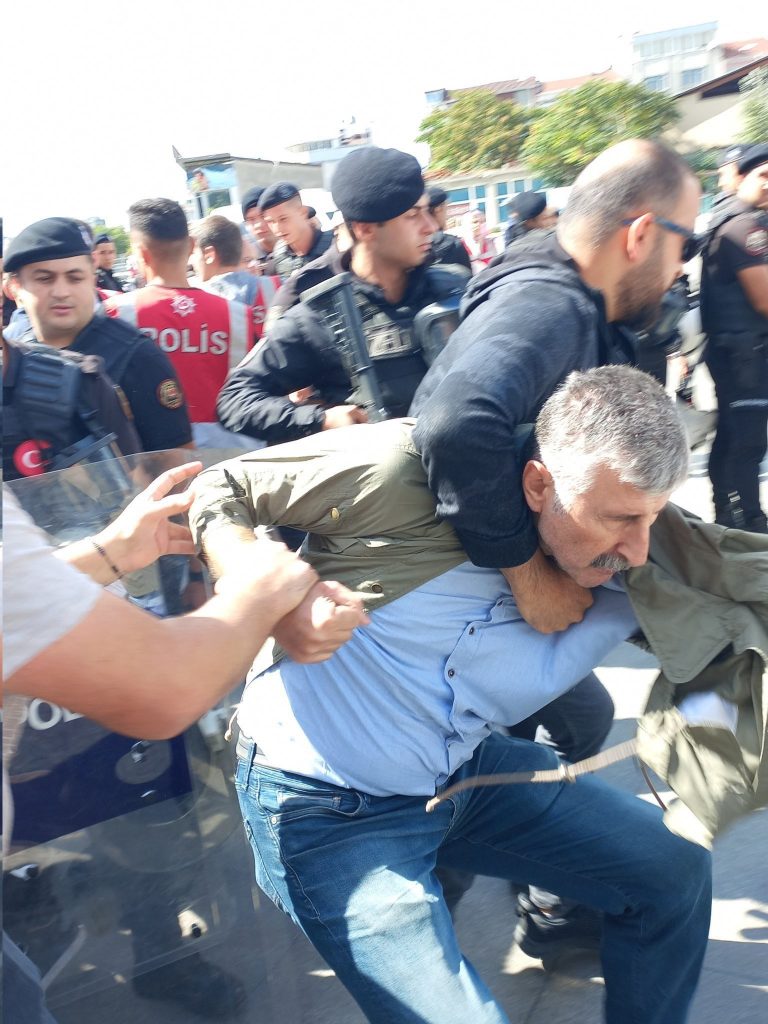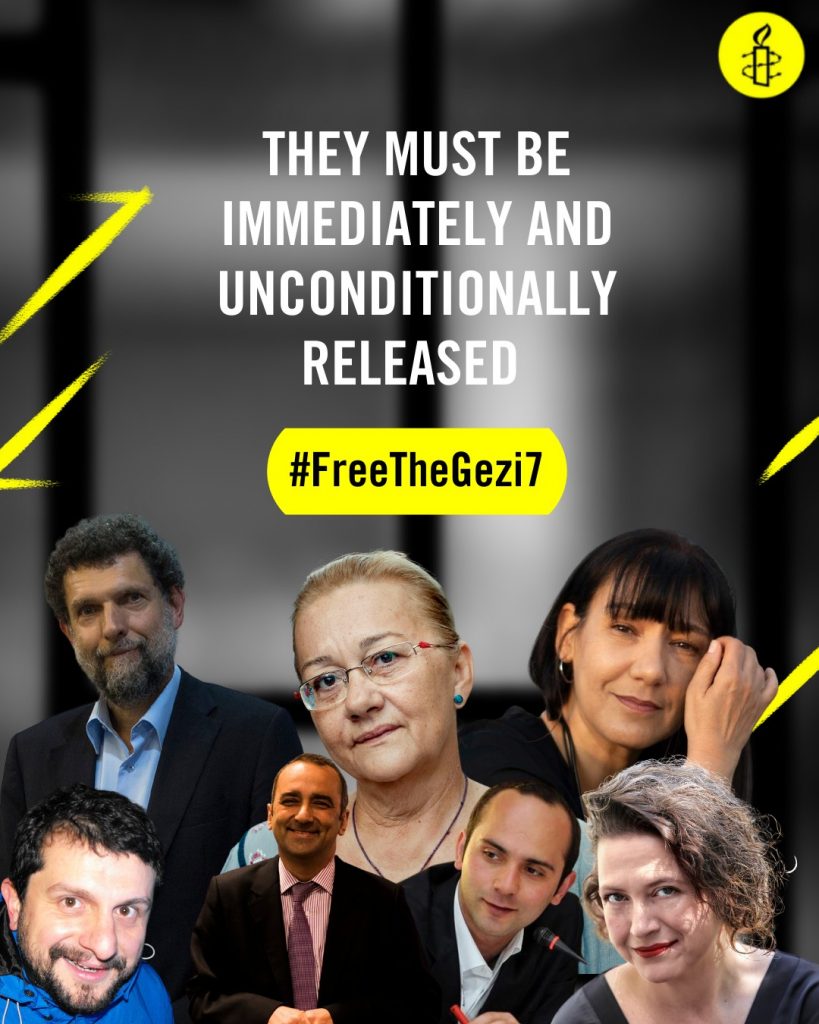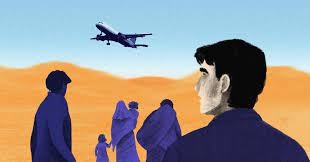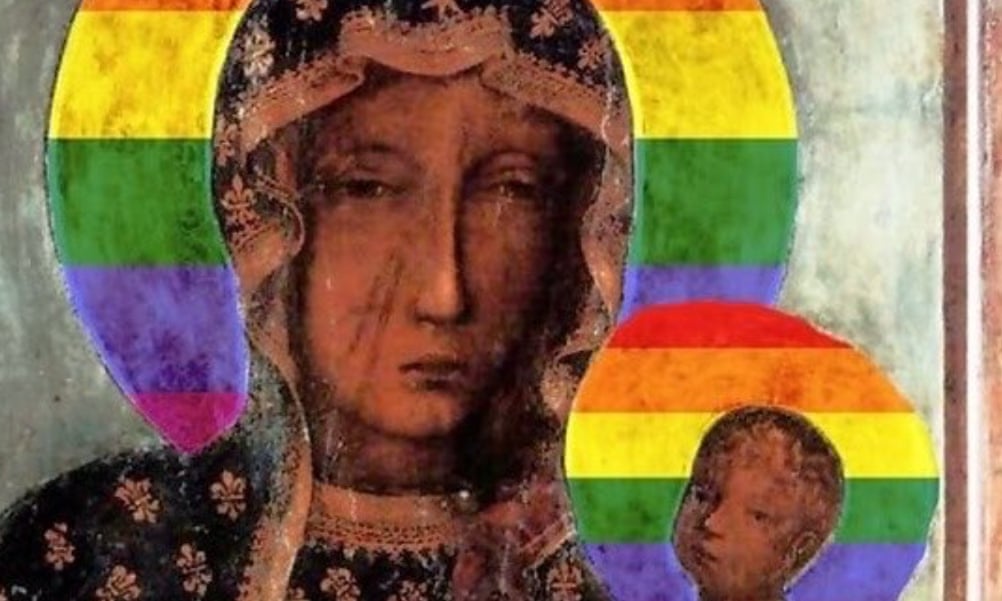Here is our latest Newsletter with updates and actions.
MALTA: EL HIBLU 3
The prosecution against the El Hiblu 3 has rested its case. That means that the court has finished hearing testimonies in the pre-trial period & the Attorney General will soon decide
which charges to bring against the El Hiblu 3.
We need to continue to push the Attorney General to DROP ALL THE CHARGES AGAINST ABDALLA, AMARA AND KADER!
To help us fight for their justice, an open letter to Malta Attorney General Dr Victoria Buttigieg was signed by supporters and sent to her on 28 September . The link to the open letter can be found here: https://elhiblu3.info/openletter.
Read Abdalla’s story here: https://elhiblu3.info/abdalla.
Read Amara’s story here: https://elhiblu3.info/amara.
Read Kader’s story here: https://elhiblu3.info/kader.
Further actions in support of the El Hiblu 3 will be sent to you as they appear.
Türkiye
Saturday Mothers
As I reported in the last edition of the newsletter the next (5th) hearing of the Saturday Mothers case was due to take place on 21st September.
Several colleagues from AI Türkiye were present, as were representatives of Turkish civil society organisations, Article 19 and some other human rights organisations, members of parliament and others.
On Monday 19 September, Saturday Mothers/People issued an appeal on social media announcing that they will issue a press statement outside the courthouse at 12.30. As result, the district governorate issued a decision to ban the gathering for one day, providing for reason the following: ‘in order to protect the rights and freedoms of others, because it represents a threat to public order, also because of the sensitive period our country is in and that it would create uproar, hurt national, conscience and human values, threatening societal peace, considering also that there may be the possibility of physical and verbal provocative actions between the organisers and citizens, in order to ensure public order, prevent the commission of crime and for the protection of the rights and freedoms of others might be threatened, that the planned events might need to unwanted outcomes..’
In the event, on the 21st the Saturday Mothers/People group and their lawyers and supporters were kettled outside the court by police both in uniforms and civilian clothes.

https://twitter.com/t24comtr/status/1572531900249423872?s=20&t=Vb4DcDDZbnes8T4-mFO4lg
Eventually the interim decision taken by the court was that of the 46 defendants, those who have yet to appear in the trial are called in one last time, the requests for criminal complaint regarding the police intervention to be rejected, with the next hearing set for 3 February 2023 at 2pm. The day after the latest hearing the European Parliament Turkey rapporteur Nacho Sánchez Amor paid a visit to the Istanbul Branch of the Human Rights Association to show solidarity with the Saturday Mothers. The link below contains video of a statement he made after that visit.
https://twitter.com/i/status/1573658477637107714
It is very important that as a Human Rights movement, we increase our solidarity with the Saturday Mothers and continue to challenge the denial of their rights to peaceful assembly. We will pass on further actions on this case as they requested by the International Secretariat.
#FREE THE GEZI 7
Solidarity Action: Feedback
In the July edition of the newsletter I set out details of various actions in support of the Gezi 7. One of these is a solidarity action to help ensure the prisoners know that there is worldwide concern for their situation and that the Turkish authorities understand that these prisoners of conscience will not be forgotten but that we will continue to campaign on their behalf until they are free.
Many thanks to all those groups and individuals who have really embraced this action. A couple of weeks ago I was delighted to learn that the wonderful York group has received a response to one of their solidarity messages in the form of a postcard from one of the Gezi 7, Human Rights lawyer Can Atalay. On this card he says:
“It is great to hear a friend’s voice from York :). I appreciate for your solidarity. We didn’t meet before but hope to see you soon.”
Yet more proof, if any were needed, that our messages/letters/social media posts etc that all too often seem to disappear into the ether can get through and do make a difference to those brave individuals we are campaigning on behalf of. If you have not yet sent any solidarity messages to the Gezi 7 the details including addresses are in this document.
Turkey Deports Thousands to Taliban-Controlled Afghanistan
 Afghanistan’s neighbouring countries have closed their borders to Afghans without travel documents. Under international law, countries are obliged to ensure a right to seek asylum and the principle of non-refoulement.
Afghanistan’s neighbouring countries have closed their borders to Afghans without travel documents. Under international law, countries are obliged to ensure a right to seek asylum and the principle of non-refoulement.
Turkey is deporting thousands of Afghans despite an international outcry about the dire humanitarian situation in Afghanistan, where the Taliban have been accused of human rights violations. Having paid smugglers to organise a dangerous escape, those fleeing the Taliban face persistent hostility.
The Taliban’s seizure of power last August plunged Afghanistan into one of the worst humanitarian crises in the world, prompting the United Nations to launch its largest single country humanitarian assistance appeal for about $4.4 billion in 2022. Despite fears of repression back home, many Afghan refugees are being forced out of Turkey, where an economic crisis is fuelling anti-immigrant sentiments. In the past six months, 79 Turkish chartered deportation flights have landed at Kabul international airport, carrying more than 18,000 Afghans, according to Turkish officials and the International Organization for Migration (IOM).
However, International refugee law clearly states that it is unlawful to deport asylum applicants without first hearing and deciding their case. Although the fighting in the country has ended, Afghanistan’s situation has been deteriorating as serious human rights violations continue unabated. In the recent months, UNHCR asked the European Union to accept 42,500 Afghans over five years but the request was resisted by the countries.
A new Amnesty International report has found that Afghan refugees have consistently come under fire while trying to cross into Iran and Turkey in the year since the Taliban retook control of Afghanistan. The report, ‘They Don’t Treat Us Like Humans,’ consist of interviews with 74 Afghans who had been pushed back by border forces and officials in both nations. More than half have reported coming under fire by border guards.
https://www.amnesty.org/en/documents/asa11/5897/2022/en/
(Thanks to Nigina Istanakzai-Zarifi Country Coordinator for Afghanistan for this contribution)
Amnesty is calling on all European countries as well as the US, Canada and Australia to increase resettlement opportunities for Afghan refugees and provide complementary pathways to protection, including community sponsorship. We are calling for a targeted resettlement and humanitarian admission scheme to be set up for vulnerable Afghan refugees in neighbouring and transit countries, which host the vast majority of displaced Afghans. Embassies and Consulates in Iran and Pakistan need to be equipped and enabled to offer humanitarian visas and family reunification.
We are awaiting further guidance from the International Secretariat on how best to campaign on this issue as it applies to Turkey to ensure our work fits in with AI’s strategy in respect of the broader picture regarding refugees from Afghanistan.
A refugees story-from Care for Calais
Thank you to all those who helped collect signatures for our latest petition to the Government of the UK on Refugees, particularly Theresa Mc Murphy, whose group collected over 140 signatures and the Perth group and the York group. Together we have to continue to fight the inhumane and cruel government policies and support refugees. Here a testimony provided by Care for Calais showing why we have to continue to campaign :
“I knew I had to leave Sudan after I was arrested and beaten by the police. I was going to join a demonstration against President Al Bashir when soldiers grabbed me and took me to the cells. They beat me so hard with everything they could find – iron bars, sticks, hands and guns. Then they kicked me in the head and face so many times with their steel-toe capped boots. As they did it they were cursing all the time, things I had never heard before I was so humiliated.
The beating caused so much pain and noise in my head. It has never away. When I finally got out I decided I had to leave Sudan, because I thought the next time they would kill me. I didn’t tell anyone at all I was going. I just ran.
My name is Sadam and I class myself as Sudanese, from the capital Khartoum, although I was born in Tripoli, Libya and grew up there. I had a good childhood, got a good education, and in 2010 I went to do a banking and finance degree at university in Khartoum. That was just before the fall of Gaddafi and Libya’s disintegration. After university I did the mandatory year’s national service, but when I went back to Khartoum I was shocked that I couldn’t get a job related to my study, because I wasn’t a part of the ruling political party.
I couldn’t go back to Libya either as the country had changed and I was no longer welcome, so life became difficult. I had to do lots of different jobs like repairing mobile phones and working in a restaurant, but then in 2018 the revolution against Bashir started. I joined the protests everyday and I was detained and beaten up many times – every time I ran away and they’d catch me again. But then I had the serious beating, and I knew I had to leave.
My only choice was to go to Chad and then Libya. I couldn’t go to Egypt because you need money to get over the border, but I thought I’d be OK in Libya because after all I’d grown up there. But the country had changed so much.
It was a very scary place. In south Libya there are many tribes who catch refugees coming over the border, and if the refugees can’t pay a ransom, their captors put them in a big warehouse and sell them to whoever needs workers. I was in this system over a year, I worked on a farm and carrying bricks. When you had finished work they sold you on to another person.
Finally I escaped and I made it to Tripoli where I met someone who could get me to Europe, where I my brother lived. I paid the smuggler, and I went to the boats.
It took five nightmare days to cross. After two days we ran out of petrol and no one could get a phone signal so we just floated for two and a half days more. In the day you could just see sea and sky and where they joined it was the same colour. At night the waves were high and threw the boat around, we were waiting to die.
On the fifth day we must have floated into a network range as someone got a phone signal. The red cross came and rescued us and took us to Italy. After being in quarantine for 10 days in Italy we were told to walk to the train and get out of the country. With some others I went from train to train, sometimes sleeping on the train and sometimes in the station; finally we got to Ventimiglia in and stayed in a camp there.
Many times I tried to cross the mountains and forests on foot, but every time the police caught me and sent me back. Then one day I met you someone who would get me over the border for money.
He had the keys to some lorries and one night he got me onto one. The lorry stopped in Marseille, and I got out there and stayed for a long time, living in the station. Eventually I went to Paris but that was worse, and I had to survive on the streets. Then I heard that in Calais there were organizations that would help me, and so headed off to northern France.
I met Care4Calais there. They allowed me to survive.
They gave me clothes and food and some shelter. I really would not have minded staying in France, but there was no help from the state, no one to help me understand what I needed to do to be able to stay in France. So that left the UK.
I hated the thought of getting on a boat and travelling on the sea again. I tried the lorries but they are so hard to get on and dangerous, you have to run behind them to try to find one you can get on. One of the refugees I was with fell from the lorry he was on and he was trapped under the wheels, he died that way, it was horrible.
So I ended up getting a boat. I said it was better to die in the sea than stay in France and live like a beggar being chased from place to place.
On the 12th of June I got to the UK. I was sent to a hotel in Bristol after Dover. I was happy to be here, straight away I felt safe in the hotel. I was thinking I could have a future and
maybe have help for my head injuries. Josie, a Care4Calais volunteer said she would help me find a doctor to treat them.
But then I got the letter that said I had to go to Rwanda. This was not a good day. In my hotel so many people have mental health problems, from their journey or from their injuries or what they have seen. Getting the Rwanda letters has made it worse, people are cutting themselves and having nightmares. Someone through himself at a glass door and broke it. People try to commit suicide. Often the police are here. We do not feel safe, the letter makes us feel we will be removed at any moment. It is the worst feeling, it is like being back in Sudan waiting for the executioner.
Rwanda is not safe, and I’m scared all the time, I don’t eat or sleep, and I just think all my journey was for nothing. Three years of hell for nothing.
The thing that helps me feel better is Josie calling me everyday. She is so good; everyday she tells me, you are not alone, we are here for you, we will fight for you, And every time she says it, I feel a bit better.”
Poland – Bad news!
 After the acquittal by 2 courts the Polish Authorities have appealed against the “not guilty “ verdict by the lower court and the regional court. Please sign and share the petition calling on the Prosecutor General to drop the appeal !
After the acquittal by 2 courts the Polish Authorities have appealed against the “not guilty “ verdict by the lower court and the regional court. Please sign and share the petition calling on the Prosecutor General to drop the appeal !
Elżbieta, Anna and Joanna are outspoken activists and human rights defenders from Poland. They have stood against hate and discrimination for many years and are fighting for a just and equal Poland. They have been targeted by the Polish authorities just because of their peaceful activism. Their demand for justice continues. Now, they need you to fight for them, once again.
In January 2022, Elżbieta, Anna and Joanna were again acquitted after spending months on trial accused of ‘offending religious beliefs’, simply for distributing posters of the Virgin Mary with a rainbow halo, the colours of the LGBTI pride flag. This was their second trial. The activists had been already acquitted in March 2021 by a lower court , however the authorities appealed that verdict, bringing the activists back into court.
The not guilty verdicts were a moment of huge celebrations, but their relief was short-lived. The Polish authorities appealed their second acquittal, at the Court of Cassation, so the three women’s fight for justice continues. Once again, they now face up to two years in prison, just for standing up for LGBTI rights in a climate of hate and discrimination in Poland. Sadly, their case is another example of the constant harassment activists and human rights defenders face in Poland for carrying out peaceful activism. The new appeal against their acquittal shows the irrational determination of Polish authorities to use the criminal justice system to that end.
Having, creating, or distributing posters such as these is not a crime; it is freedom of expression, a basic human right.
The world is on these activists’ sides. Before their acquittals hundreds of thousands of people took action urging the Polish Prosecutor General to drop the unfounded charges. This solidarity gave Elżbieta, Anna and Joanna the strength to continue fighting for their rights.
Now, they need your support once again. They won’t stand for this harassment. And neither will we.
Tell the Polish Prosecutor General to drop the appeal and ensure that Elżbieta, Anna and Joanna are able to carry out their peaceful actions without harassment or reprisals.
Please take Action ! https://www.amnesty.org/en/petition/poland-activist-elzbieta-podlesna/
Poland: Authorities must stop hateful rhetoric against LGBTI people and act to protect them from violence and discrimination
Polish authorities have targeted LGBTI people with stigmatising and harmful rhetoric, and refused or frustrated their attempts to protest, Amnesty International Poland has found in a new report. “They treated us like criminals: From shrinking space to harassment of LGBTI defenders” finds that LGBTI people and their allies who take to the streets to protest against the assault on their rights are frequently left unprotected from verbal and physical attack by homophobic counter protesters or subjected to heavy-handed police tactics and criminal prosecutions.
AI Poland’s new report on crackdown of LGBTI activism On 20 June, AI Poland launched its most recent report on the crackdown by Polish authorities on the LGBTI activism, They treated us like criminals: From shrinking space to harassment of LGBTI defenders. The report makes a chilling read around the restrictions and human rights violations experienced by activists and groups engaged in LGBTI related activism.
Please see the Press Release, with a link to the report, at https://www.amnesty.org/en/latest/news/2022/07/poland-authorities-must-stop-hateful-rhetoric-against-lgbti-people-andact-to-protect-them-from-violence-and-discrimination/.
Hungary
Rule of Law and Human Rights European Parliament: Hungary can no longer be considered a full democracy
Parliament condemns the “deliberate and systematic efforts of the Hungarian government” to undermine European values and demands results in the Article 7 process. The lack of decisive EU action has contributed to the emergence of a “hybrid regime of electoral autocracy”, i.e. a constitutional system in which elections occur, but respect for democratic norms and standards is absent, MEPs say. The report adopted on Thursday, with 433 votes for, 123 against, and 28 abstentions, builds on the one with which Parliament triggered the Article 7 procedure in 2018.” See relevant Amnesty EU Press Release.
Hungarian government to set up an anti-corruption authority
The government decided to set up an anti-corruption authority and an anti-corruption task force as an independent authority to “prevent, detect and correct illegalities and irregularities” in the management of EU funds. “This can be seen as a concession to the EU, with the government hoping – among other things – that this will remove the obstacles to the thousands of billions of forints of EU funds that have been withheld.” However, anti-corruption NGOs find the plans doubtful and considered it as window-dressing.
Viktor Orbán’s grip on Hungary’s courts threatens rule of law, warns judge
In rare comments that lift the lid on the Hungarian government’s assault on judicial checks and balances, Csaba Vasvá ri, a senior judge at the Budapest metropolitan court, told the Guardian that he and his colleagues on the bench “have been witnessing external and internal influence attempts” for several years. Vasvá ri, who has worked as a judge for 18 years, is a spokesperson for the National Judicial Council, a self-governing body that has been battling to defend judges’ independence for more than a decade.” Relevant Amnesty Hungary Press Release and link to EU Commission report.
Western & Northern Europe : France
Preparing fo the 2022 Write for Rights Campaign in November ZINEB REDOUANE
In December 2018, 80-year-old Zineb was preparing dinner and chatting to her daughter on the phone in her fourth-floor apartment in Marseille, France. In the streets below, police officers were using tear gas to disperse a protest against poor housing conditions. As Zineb went to shut her window, a police officer pointed a tear gas grenade launcher in her direction and fired. She was hit in the face by a grenade and sadly died from her injuries. No one has been suspended or charged over her tragic death.
Zineb was killed by the reckless use of a tear gas grenade. Nearly four years later, an investigation into her death is still ongoing, and no one has been charged or suspended over the killing. Zineb’s
family are still waiting for justice.
This year’s Write For Rights Campaign will be starting in November. Please get in touch if you would like to take a part in Write for Rights for Zineb.
Campaign will concentrate on:
• writing to the French authorities to demand justice for Zineb
• and, showing Zineb’s family we’re with them by sending them messages of solidarity and hope, to help them stay strong in their battle for justice.
Please get in touch during October if your local group is interested in taking part in Write for Rights for Zineb. During October we will be holding consulting meetings in order to prepare Write for
Rights activities for November. jovana.bosnjak@amnesty.org.uk
If you organise your own Write for Rights campaigns for Zineb, please send us an update so we can collect information about all the actions that have taken place. jovana.bosnjak@amnesty.org.uk
Materials that can help you prepare your own Write for Rights activities can be found here:
https://www.amnesty.org/en/documents/pol32/5948/2022/en/
Chris.Ramsey Country Coordinator for Turkey; Jovana.Bosnjak Country Coordinator for Western & Northern Europe; Rovena.Tanazi Country Coordinator Balkans, Greece and Eastern Mediterranean; Ulrike.Schmidt Country Coordinator for Central Europe